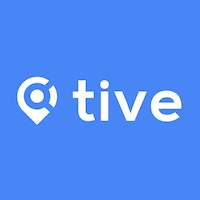Takeaways From IoT Roundtable Discussion

November 6, 2017
March 24, 2025
x min read

Last week I had the opportunity to be a facilitator at the Underscore VC Core Summit. If you don't know them, Underscore is a relatively new VC here in Bostondoing a great job of bringing people together around common interests.
The recent summit was a roundtable focused on Internet of Things (IoT) attended by a number of local startups.
The roundtable had a wide array of attendees, ranging from robotics companies to enterprise IT to consumer goods, all with some element of IoT in their business. Despite the great variety of business types, we quickly realized we had a number of topics in common we wanted to discuss.
Security and Privacy
Everyone at the table recognized the need for a focus on security, and especially for consumer companies, privacy. The norms for IoT are not well established yet, so topics like "how secure is it" and "who owns the data" come up a lot. Obviously, different industries are dealing with different flavors of these issues.
At Tive, we recognize that data about supply chain movements is extremely sensitive for our customers, so we try to be very clear that we treat data confidentially. At the same time, the data we gather from our customers will allow us to create new tools and services that will help all of our customers improve their supply chains, so we talk to each customer about what sort of data we use (anonymously) to create value for all users. This idea of sharing some types of data anonymously to enable access to shared tools is a relatively new topic for most companies, but many of our customers embrace the idea quickly as they understand the benefits and the fact that we take their confidentiality seriously.
Revenue Models
Another theme that emerged from the discussion was the topic of revenue models for IoT products. Most IoT businesses involve both hardware and software -- for example, Tive manufactures a tracking device and also builds cloud-based software. Historically these types of businesses had different revenue models. You pay cash up front for hardware, and software is often purchased as a subscription (at least it has for the last 10 years or so).
But for IoT companies, these lines are blurred. As a result, companies find themselves having to craft a new revenue model. Some companies have very heavy upfront capital costs and limited ongoing costs, and so they go with a "one time sale" model (think Fitbit). Others (like Tive) provide most value on an ongoing basis through software, and so they use a more SaaS-like pricing structure. In some markets, customers are still uncertain which type of payment makes the most sense, so there's still a fair amount of experimentation with revenue models.
Recruiting
Whenever you get a bunch of business leaders together to talk about their challenges, recruiting always comes up. For the IoT crowd, it's a particular issue because of the wide array of talent needed. In addition to software developers, most IoT companies also need electrical engineers, mechanical engineers, and firmware engineers. This last role was discussed for some time -- if you're not familiar with the term, firmware is the software that runs on a specialized piece of hardware. Unlike "normal" software, which can be written in a variety of languages by generalists, firmware is generally written in some specific language based on the hardware being used.
Needless to say, these people are hard to find, but critical. At Tive, firmware has been one of our key strengths - our device lasts 2-3 times longer than other similar trackers largely because of our skill in writing firmware that lowers power consumption on the device. So of course everyone at the roundtable is looking for firmware people. If you're an engineer in college thinking about what to focus on, let me suggest firmware - it's definitely a growing field. (BTW - we're hiring.)
Thanks to Underscore For Organizing
IoT is a pretty new topic (compared to, say, "software") so there aren't a lot of forums where actual practitioners can get together and discuss their businesses. I personally learned quite a bit from the other attendees and I look forward to staying in touch with other Boston-based startups in the IoT space. Thank you to Underscore for organizing such a great event!

